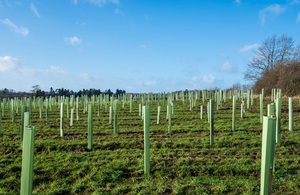Russia is violating International Humanitarian Law: UK statement to OSCE Special Permanent Council
Thank you, Mr Chair. We welcome the calling of this Special Permanent Council on Russian aggression against Ukraine.
We are appalled by the killing of Ukrainian Prisoners of War held in the Olenivka penal facility. Our thoughts are with the victims’ families and loved ones at this terrible time.
We remind Russia again that it voluntarily signed up to, and helped to create, the elements of International Humanitarian Law under which parties to armed conflict are obliged to safeguard the life, dignity and integrity of persons under their power – including Prisoners of War. Russia’s denial of access to humanitarian organisations is in direct contravention of these laws. Indeed, Russia’s actions are in contravention of basic humanity – even offers of supplies have gone unanswered.
We are not interested in whatever preposterous narrative Russian officials deploy this week. We are interested in urgent humanitarian assistance for those injured at Olenivka. We are interested in the evidenced findings of independent international institutions, including full, unimpeded access for the recently-launched UN fact-finding mission to Olenivka. And we are interested in justice for the victims. We are determined that justice will prevail.
Denial of access to Olenivka is just the latest example of Russia’s contempt for International Humanitarian Law. The second Moscow Mechanism report noted concern over ‘clear patterns of serious violations of international humanitarian law attributable mostly to the Russian armed forces”, including the magnitude and frequency of the indiscriminate attacks carried out against civilians and civilian objects. Russia willingly entered into agreements on International Humanitarian Law, and it cannot shirk its responsibilities.
The Moscow Mechanism report also highlighted the cases of British nationals, Shaun Pinner and Aiden Aslin, and Moroccan national Brahim Saadoun – sentenced to death by Russian proxies in illegitimate trials. Russia appears to be preparing to take similar action and put Andrew Hill and John Harding, serving members in the Ukrainian Armed Forces on trial – along with Dylan Healy, a civilian detained while undertaking humanitarian work. All 3 are entitled to protection under International Humanitarian Law, and their trial by an unrecognised court would be another clear violation by Russia. Attempts to use detainees for propaganda and to force engagement to legitimise Russian proxies are disgraceful. The UK does not recognise or engage with so-called DPR or LPR; we are clear that Russia is responsible and accountable for the treatment of detainees.
Each week, as the devastating consequences of Russia’s barbaric tactics bring more death and destruction, evidence builds and charges mount. Russian missile attacks continue across Ukraine – on 28 July, while Russian officials reeled off Kremlin-approved lies and disinformation in the Permanent Council, 5 people were killed and 25 injured following a strike on a flight academy in Kropyvnytskyi. Meanwhile, IAEA Director-General Grossi has described the situation at the Zaporizhzhia Nuclear Power Plant, where Russian troops are present, as completely out of control. According to Director-General Grossi, “all nuclear security measures” have been violated. This behaviour is irresponsible and reflects cruel indifference to potential impacts on civilian populations. But after more than five months, this is what we have come to expect from Putin’s Russia – a state operating outside of the international laws and standards designed to support everyone – including Russia.
The Kremlin has demonstrated again and again that they set no store by international law, including international humanitarian law. Unfortunately for Russia, the rest of the world does. The international community is watching every transgression, and perpetrators will be brought to justice. We have stood with Ukraine from the start. For the sake of European security, we must continue to support Ukraine militarily, economically and with humanitarian aid, until Ukraine’s victory is secured. Thank you, Mr Chair.

